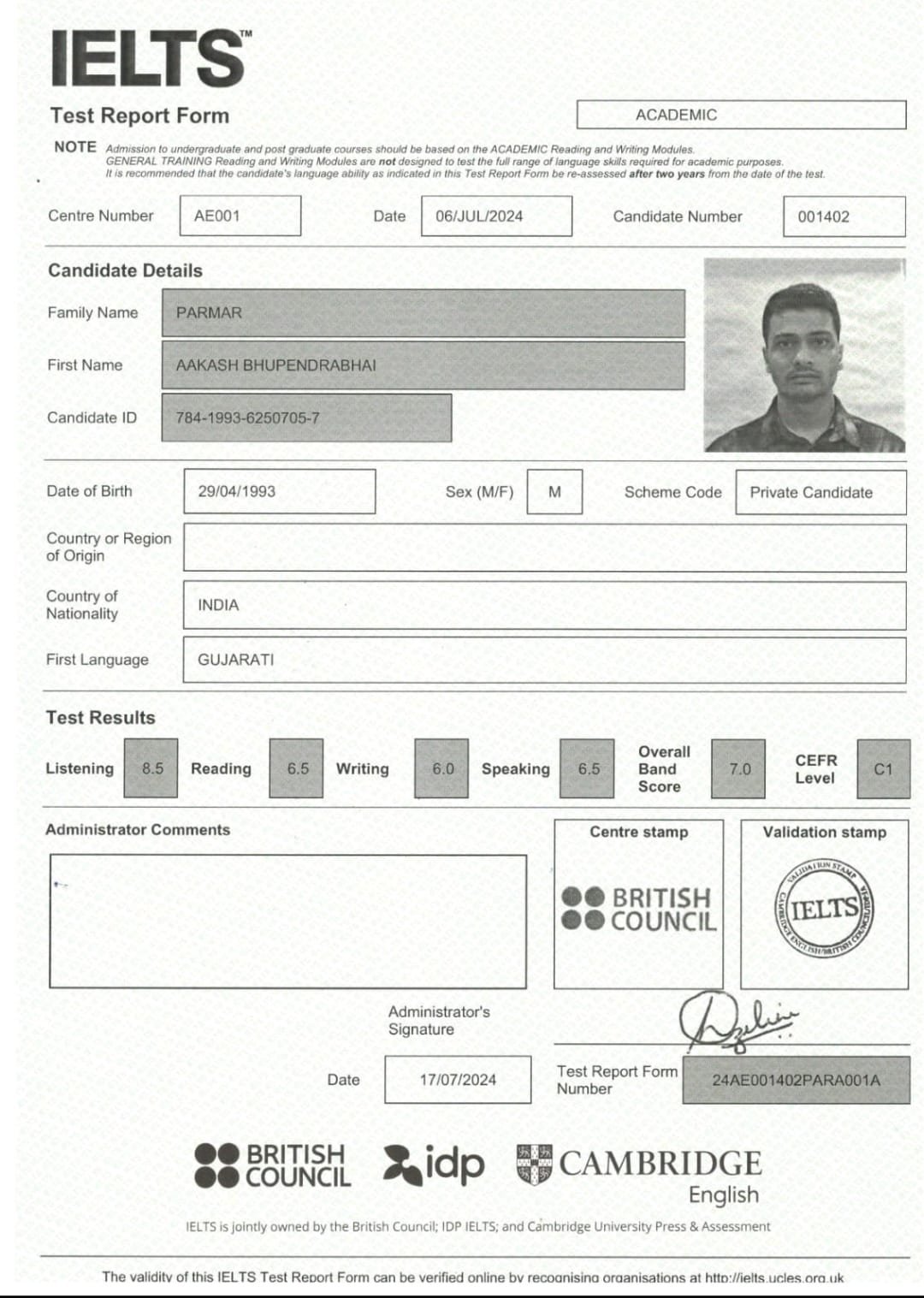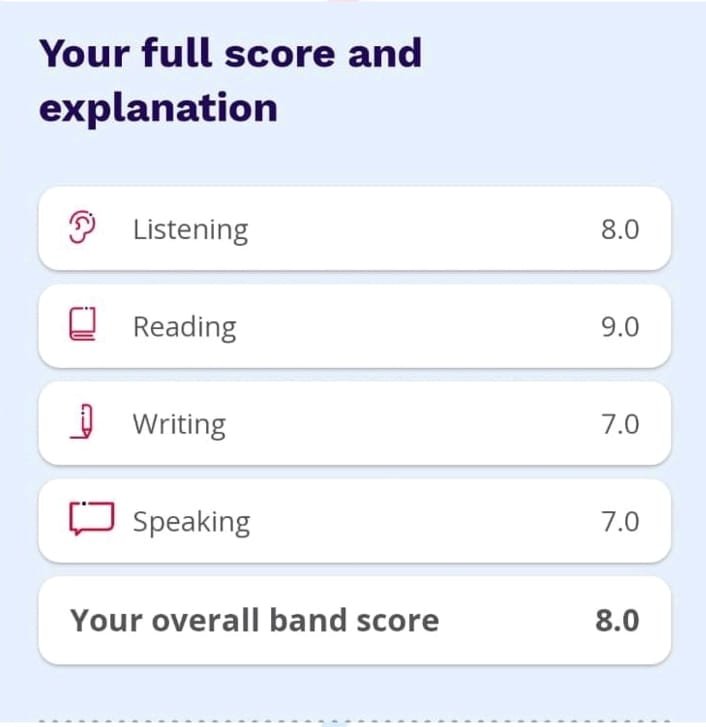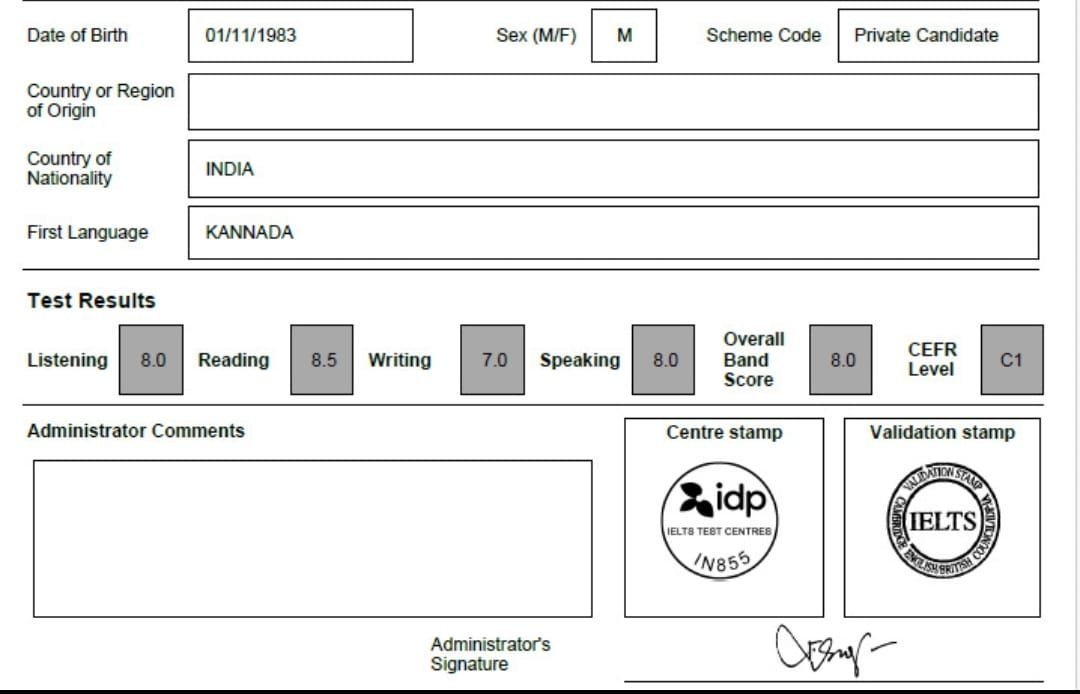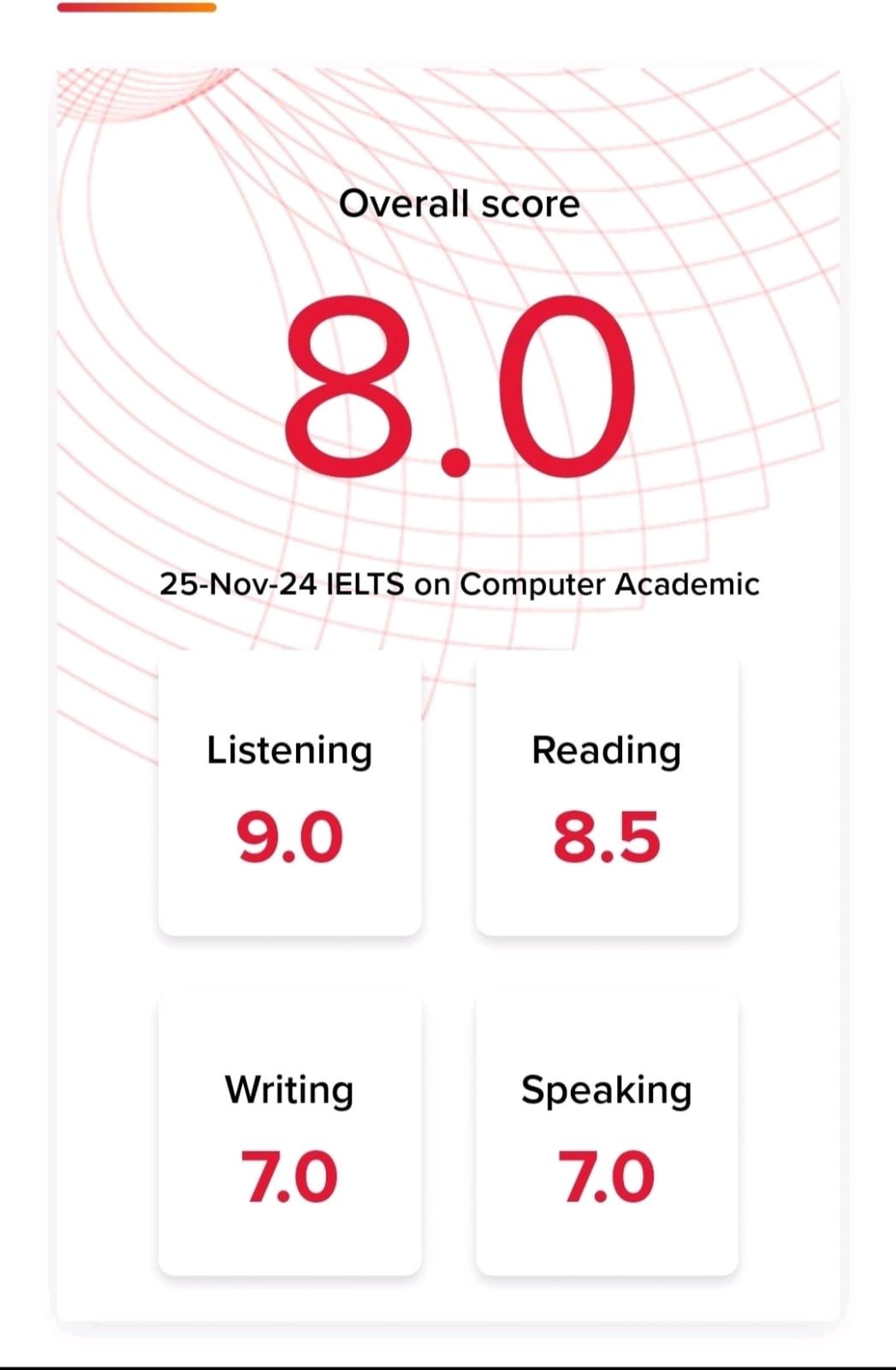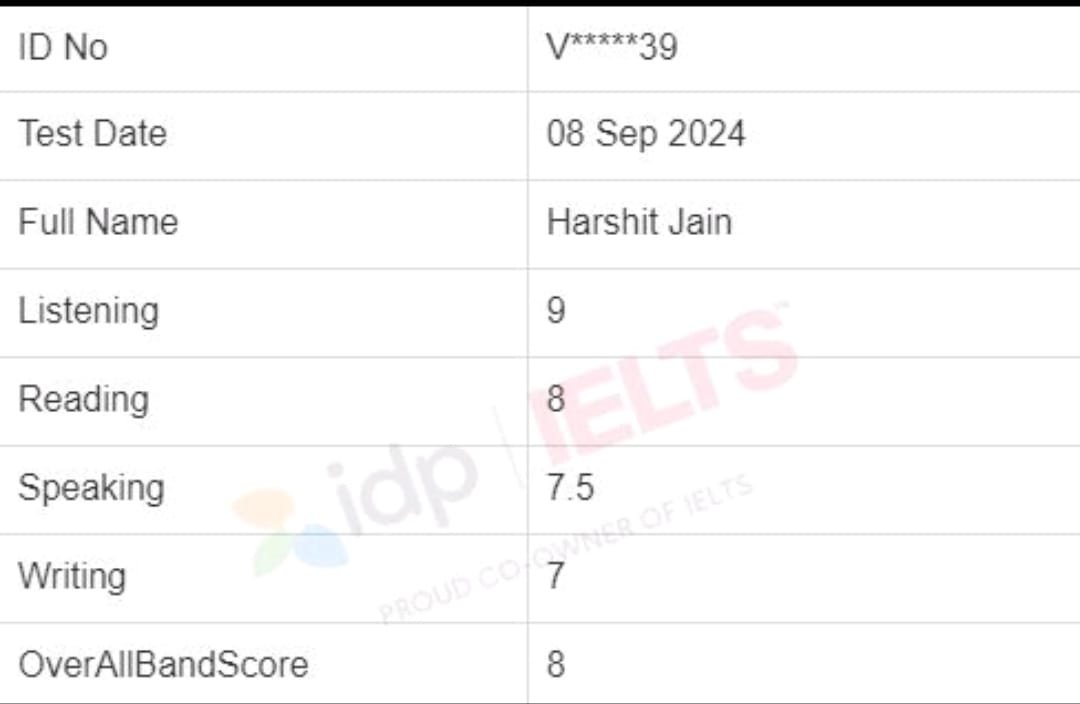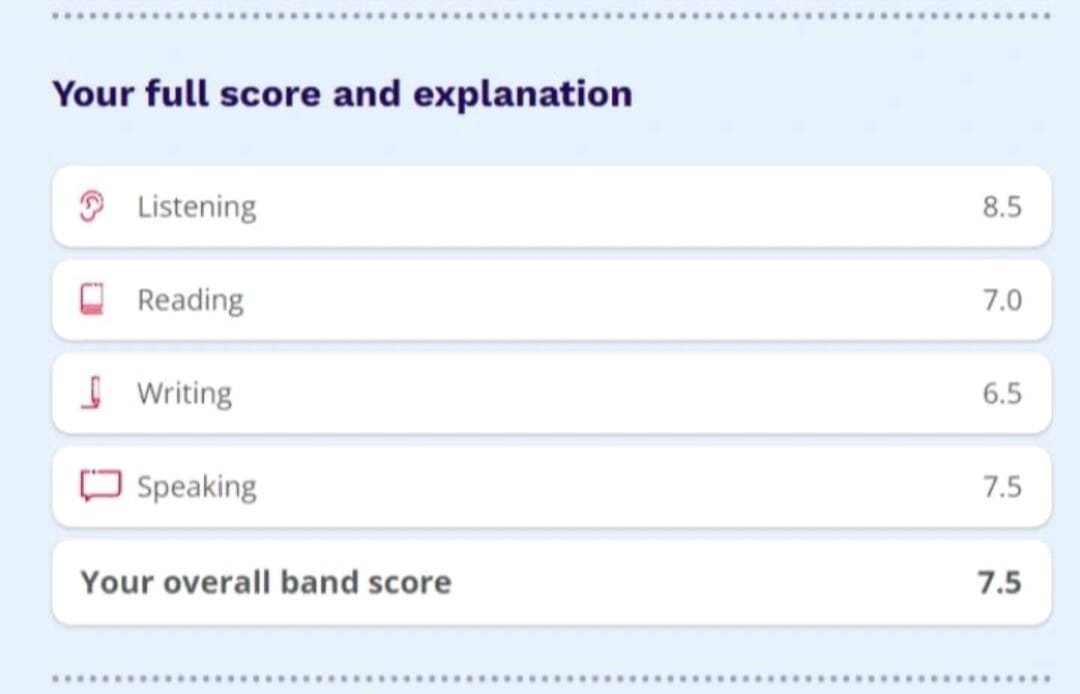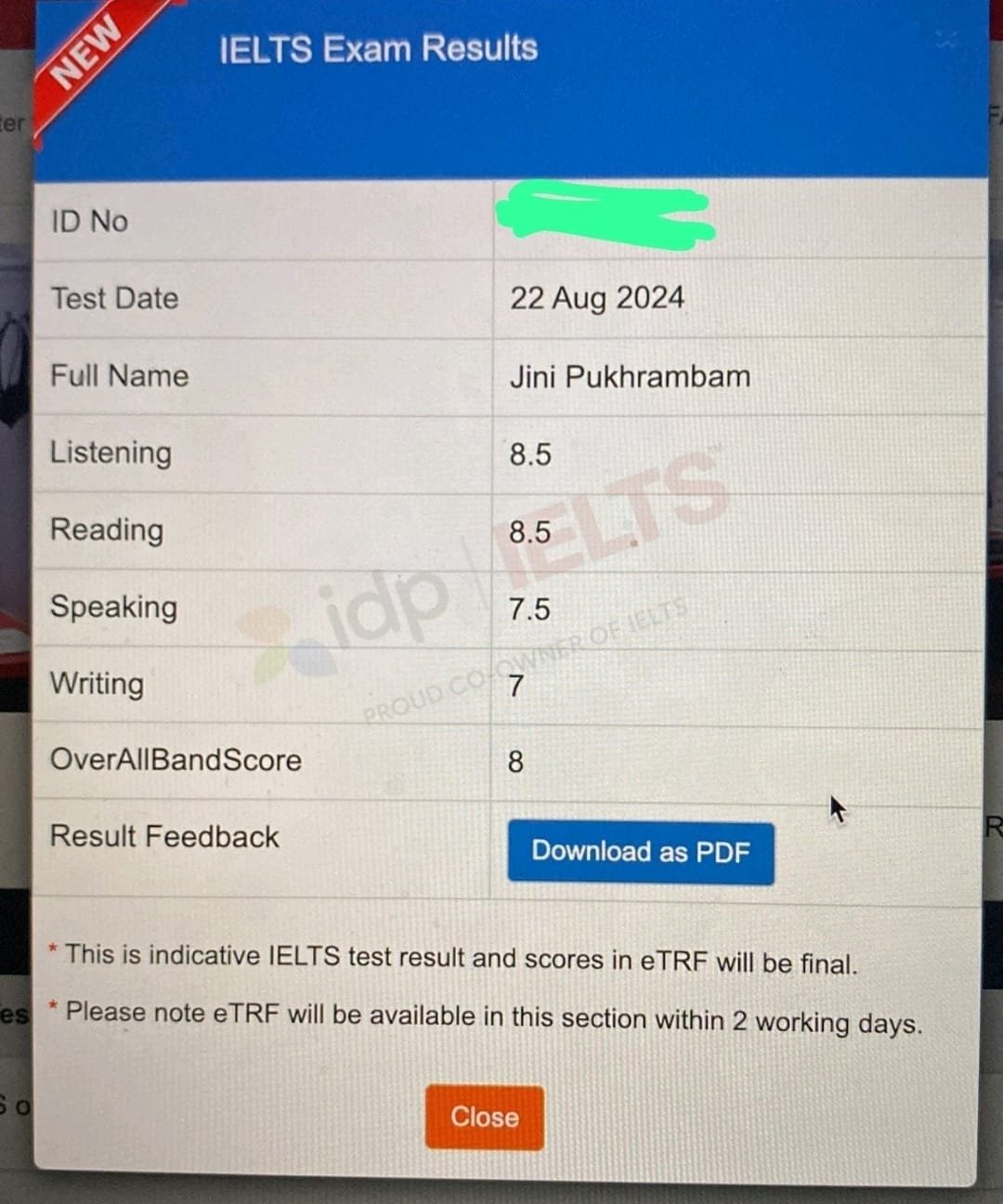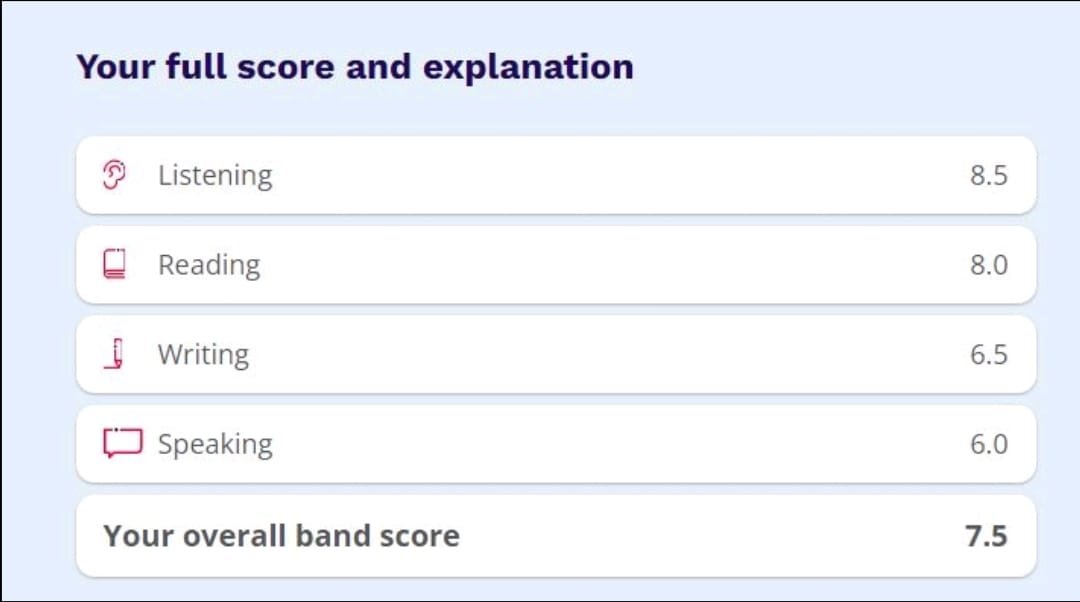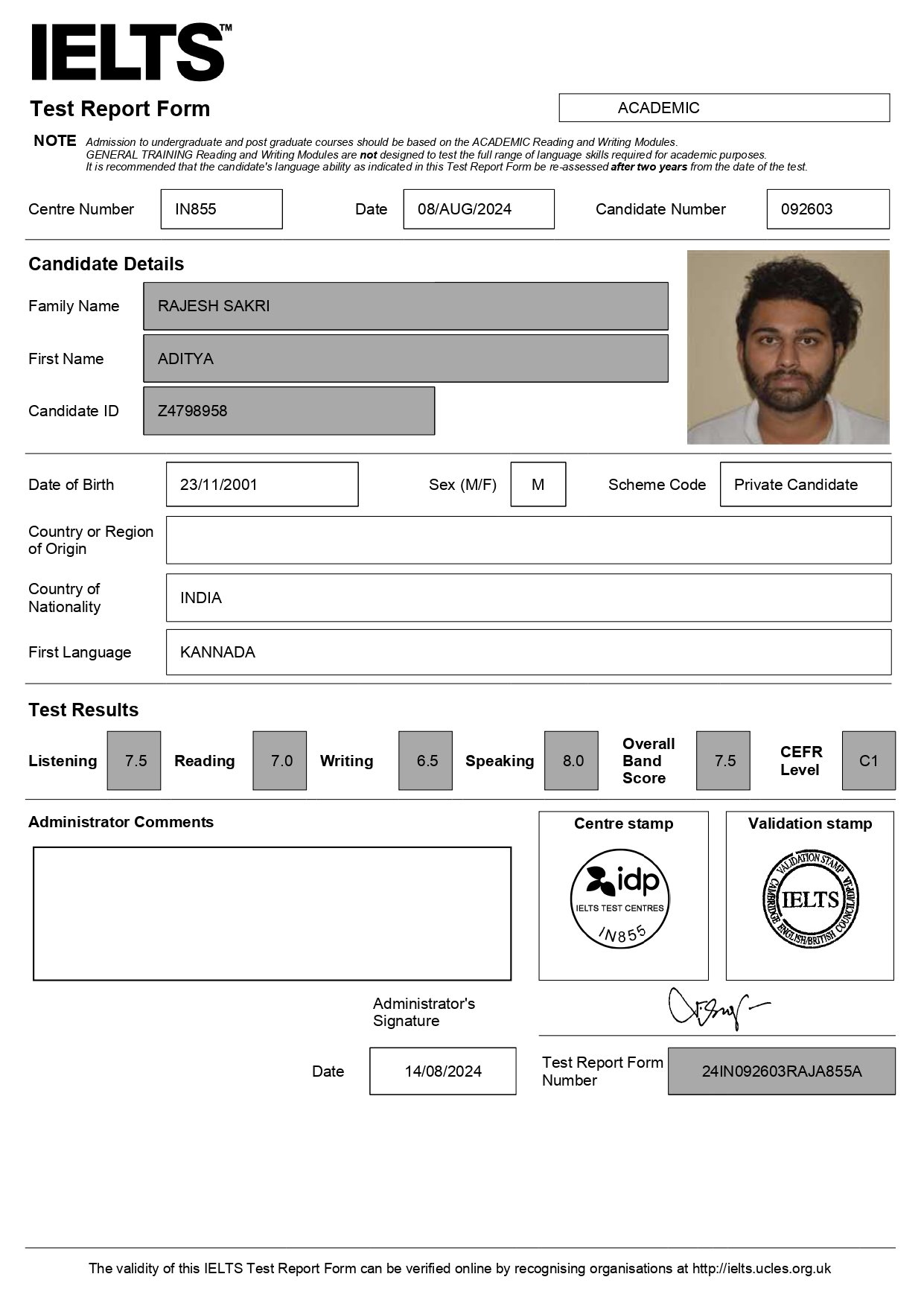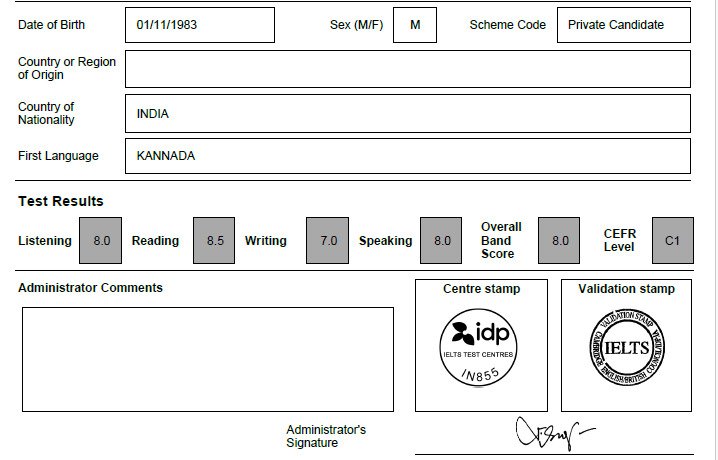
Hi there! I’m Your Local IELTS Coach Karan Kumar, with years of experience helping students like you, achieve their dream scores. One of the most important steps I will be walking you through today is taking one specific IELTS test if you plan to study in English English-speaking country. Consider this as your own crash course from someone who has guided thousands of students similar to you.
Well, first of all, let’s take an idea of IELTS importance. IELTS has become the world’s most widely trusted test of English, with more than 11,000 organizations worldwide accepting it. Until this test, you will reach your destination of studies in the land that makes up your dreams, Canada, UK, Australia, or even the US.
The IELTS test comes in two modules:
- IELTS Academic: Ideal for applicants who enroll in the university or institutions.
- IELTS General Training: Suitable for overseas work or migration.
Both modules are to check the proficiency of one’s English so that he or she can confidently communicate with others in an English-speaking environment.
How is the IELTS Test Structured?
The IELTS test is divided into 4 sections:
- Listening
- Reading
- Writing
- Speaking
Here’s how it works:
- The Listening, Reading, and Writing sections, all are conducted on the same day consecutively without breaks. Don’t worry; I shall coach you in the management of your energy.
- Speaking is somewhat of a story unto itself. It’s a one-to-one conversation with a certified examiner, and it can be taken either before or after the other three tests, again depending on your test center.
This format is designed to evaluate how well you can use English in real-life scenarios—whether it’s understanding lectures, writing essays, or having a casual conversation.
Why Take IELTS?
Over 4 million students worldwide take the IELTS test every year. Why? It’s trusted and reliable, offering attention to the development of real-world skills in your English communication. You prove that you do know English by sitting for IELTS but can actually function well in any environment speaking English.
I have students change their lives with one good performance on this test. Honestly, it’s not just grammar and vocabulary; it’s understanding the test format, use of strategies, gaining confidence, and that is where I can help.
Why is IELTS Important for University Admissions?
Let me tell you this, if you are a striving student and want to be admitted into the top college ranks, IELTS is unavoidable. It is not only a must but the only way to prove that indeed you can make it through English-speaking academia.
Do you know that even the UK, the US (Ivy League universities included), Canada, and Australia require a candidate to produce IELTS scores for college admissions? Even universities in non-English-speaking countries sometimes insist on IELTS scores because their courses are conducted in English.
Universities set minimum IELTS scores for programs. Therefore, passing that mark would assure you that you could handle lectures, assignments, and discussions with ease. And when you spend your time, energy, and money studying abroad, being so prepared is the smartest decision you have ever made!
Who Needs an IELTS Certificate?
The IELTS is not intended for students only; it is also targeted at professionals and individuals who plan to live or work in an English-speaking country. Here’s the beneficiary:
Students: If you’re planning to study abroad, IELTS is your ticket.
Job seekers often require IELTS certification in any field, like healthcare, law enforcement, or education.
Immigrants: It is a need to emigrate to countries such as Canada, Australia, and New Zealand.
Regardless of your reason, an IELTS certificate gives wings to your success. Employers, institutions, and immigration offices accept it as evidence of good English skills.
What Makes IELTS Unique?
It diagnoses the entire components of English — The IELTS exam is a whole test. Getting the gist of it is not knowing grammar or memorizing vocabulary, but your capacity to listen, read, write, and speak English in real-life contexts.
Another unique feature of IELTS is that it has various English accents—so you do have to understand different pronunciations!
This is how the total IELTS scores are considered:
Your cumulative band score is an average of your scores from Listening, Reading, Writing, and Speaking.
Therefore, if one scored a 6.5 in Listening, a 6.5 in Reading, a 5.0 for writing and a 7.0 in speaking then the overall score would be 6.25 which rounds off to 6.5.
A good IELTS score leads to entry into prestigious universities, new job opportunities, and even teaching jobs such as Teacher Assistant!.
Academic v. General Training
Then, which test should you take: Academic or General Training? Let me make it easy for you:
Take IELTS Academic if you are looking to start undergraduate or postgraduate studies, or if you are applying for a profession like nursing, teaching, or as a lawyer.
If you intend to relocate, then do an IELTS General Training for your vocational training or apply for a non-academic job.
Both versions test your English skills but, are more scholarly in the Academic module as compared to the General module, which is more practical and even covers every day-to-day social scenario as well as everyday workplace encounters.
Common Mistakes to Avoid
Over the years, I’ve seen students lose marks over avoidable mistakes. Here’s how you can stay ahead:
Stick to the word limit:
Task 1: Minimum 150 words.
Task 2: Minimum 250 words.
Writing less can cost you marks, so practice counting your words quickly!
Avoid overloading with transitional words: Linking words like “however” and “therefore” are great—but don’t overdo it. Too many can ruin the flow of your writing.
Focus on pronunciation, not accent: Don’t stress about having a “perfect” accent. Instead, focus on clear and correct pronunciation.
Be concise in Speaking: When answering questions, get straight to the point. Avoid rote-learning answers; instead, practice speaking naturally and responding spontaneously.
Get Help with My Ebooks Practice Materials
Struggling with IELTS prep? No worries, I have you covered! My E-books are full of all the stuff required to crush the IELTS Examination. From overcoming difficult Reading questions to preparing for your Writing tasks and even boosting your confidence before the Speaking test, these E-books have you covered.
These books are packed with simple strategies, sample answers, and lots of practice material to build confidence for test day. So why wait?
Tips to Achieve a High Score on the IELTS Exam
If you are targeting a high-grade score, you do need proper preparation. And so, here are some practical tips to help you through this and feel confident on exam day.
1. Get Familiar with the IELTS Exam Format
Familiarize yourself with the structure. The IELTS consists of four sections: Listening, Reading, Writing, and Speaking. Each section has a certain time span to be used and with a specific question type. If you are not familiar with the nature of the test, you may get confused during the exam. So spend some time understanding how the test works before preparing for it.
2. Assess Your Current English Level
Before you start studying, assess your current level of English ability. Are you weak at some points but good at others? After finding out where you stand, plan your course of study that not only gives you time to work on your weaker sections but also maintains your strengths.
3. Immerse Yourself in English
As much as possible, immerse in English but color it according to your test type:
- Academic IELTS The focus is on reading academic articles, research papers, and essays.
- General Training IELTS: Watch English movies, listen to podcasts, or read newspapers and magazines.
Exposure to the English language will give you lots of familiarity with mixed kinds of sentences, vocabulary, and accents.
4. Build a Vocabulary Notebook
Keep an exercise book in which you jot down any new words that you come across during the practice. Record their meanings, synonyms, and a few example sentences. Thereafter you will start using more naturally in writing and speaking, and they will come naturally during the exam.
5. Practice Paraphrasing and Note-Taking
When you read essays, articles, or news reports, put side comments in your own words. That helps improve paraphrasing skills, what Writing and Speaking tasks require. The ability to understand what you read and then find a way to express that in your words strengthens Reading comprehension.
6. Improve Pronunciation
Focus on pronunciation rather than accent. IELTS examiners care more about clarity than sounding like a native speaker. Practice speaking English regularly, either with friends or through language exchange apps. Listening to native speakers on platforms like YouTube or podcasts can also help you improve your pronunciation.
7. Practice Past Exam Papers
Time management is a big challenge during the IELTS exam, so practice with past papers as much as possible. Simulate real exam conditions to build confidence and learn to allocate your time wisely.
8. Write with Structure and Clarity
For Writing tasks, always analyze the question before starting. Create a clear plan:
Write a thesis statement for each paragraph.
Use clear topic sentences and cohesive linking words.
After completing your response, review it for grammar, spelling, and sentence structure mistakes.
Remember, quality matters more than quantity. Keep your writing relevant and well-organized.
9. Focus During the Listening Section
In the Listening section, pay attention to the audio instead of trying to write everything down. Missing key information because you’re too focused on taking notes can hurt your score. Write down only the necessary details and answers, and keep your focus on understanding the recording.
My Final Thoughts
The IELTS can feel like a beast of an exam, but it is definitely achievable with the proper preparation! After more than 13 years of helping students reach, and even exceed their target scores — I assure you it is possible.
Note, IELTS is not only an exam, it may be your wings to a better version of you.
If you have questions or require assistance preparing, let me know. I am here to help you navigate through this as easily as possible. Let’s ace this together!




